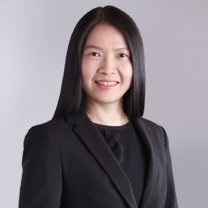Dr. Kulaya Tantitemit is currently the Executive Director representing the South East Asia Voting Group. She shares her thoughts about working at the World Bank Group and her priorities since assuming the position in November 2018.
As the Executive Director representing a group of countries including Thailand, what are your priorities and what do you hope to accomplish?
The Southeast Asia Voting Group consists of eight countries from South East Asia, namely Brunei, Indonesia, Lao PDR, Malaysia, Myanmar, Singapore, Thailand and Vietnam, as well as three countries from outside the region, Fiji, Nepal and Tonga. This group of countries has diverse levels of economic development and priorities. Therefore, it is important for me to understand the specific circumstances and priorities of each economy as well as their needs and concerns so that I can best represent and promote our group’s mutual interests.
My priorities focus on growth, social investment, and sustainable economic development. I strongly believe that key to success in these areas are investments in human capital, including health, education and social protection.
Furthermore, I recognize that our group’s continued growth and development are dependent upon us having an underlying sustainable environment. It is critical to protect the environmental resources for both current and future generations. During my tenure, I will coordinate and communicate closely with all stakeholders, particularly the governments of each country, especially on the key policies and initiatives of the World Bank. All assistance and projects provided to countries in our group must be carefully selected and implemented to ensure we achieve the highest possible level of benefits to support our growth and development.
You were working with the Ministry of Finance before, since assuming this position at the World Bank Group, what has been the biggest change?
I previously held several roles in Thailand’s Ministry of Finance, each of which allowed me to gain more experience in working with people to develop effective policy as well as helped develop my skills in supporting international cooperation initiatives. This experience in Thailand helped prepare me to support the World Bank’s mandate to provide financial assistance and to direct the development of effective policy. Nevertheless, the role of Executive Director at the World Bank is broader and requires knowledge and experience across a broad range of topics. Moreover, it can be more complex as we need to consider the perspectives of the 11 countries in our group, as well as how our agenda fits in with the agendas of the 189 member countries of the World Bank.
What excites you about this role?
I very much enjoy being part of a multilateral organization that is professionally run by people who are committed to improving the lives of people across the globe to ensure that the economic benefits of development are shared. The World Bank is unique in that it can accomplish things that a single country is unlikely to be able to address alone, particularly in the areas of global public goods, climate change, gender equality and conflicts.
On a typical day, what is it like working at the World Bank?
I spend a significant amount of time studying and analyzing issues so that I can provide constructive input and support effective decision-making by the board of directors. As I represent a group of countries in my constituency, I have to make sure that their views and concerns are expressed to the Board. I work closely with my team and senior officials from the countries of my constituency to ensure all of their voices are heard.
My other responsibilities include serving on several committees. I am currently serving as the Chair of the Ethics Committee, Vice Chair of the Governance and Executive Directors’ Administrative Matters (COGAM) Committee and as a member of the Human Resources Committee.
A typical day at the World Bank also involves interacting and sharing perspectives with my colleagues who come from very different cultures and have had very different life experiences. This aspect of the work environment is very rewarding as I am constantly being exposed to different views and learning about different aspects of my colleagues’ culture whether we are discussing politics or just sharing our favorite foods.
What would be your advice to Thai people who are interested in working at the World Bank?
Working at the World Bank can be an invaluable experience with the potential to open career opportunities and to stimulate personal growth. A number of world leaders have previously worked here, including the current President of Afghanistan Ashraf Ghani, the Jordanian Prime Minister Omar Razzaz, and the former Liberian President Ellen Johnson Sirleaf.
Working at the World Bank will expose you to the ideas of a diverse set of professionals and scholars who can challenge you to grow and learn. Most importantly, the World Bank offers a unique environment where you can develop a global perspective, broaden your horizons and develop long lasting relationships.

